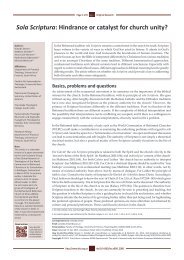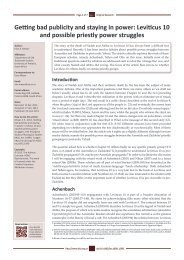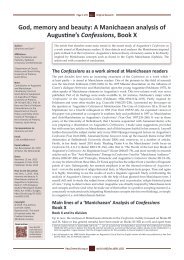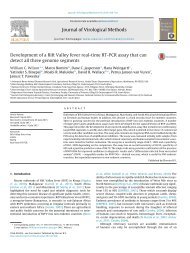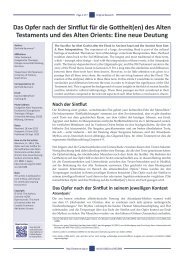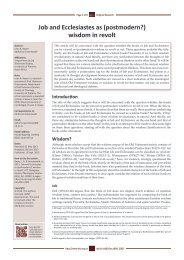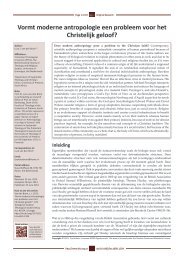View/Open - Repository.up.ac.za - University of Pretoria
View/Open - Repository.up.ac.za - University of Pretoria
View/Open - Repository.up.ac.za - University of Pretoria
You also want an ePaper? Increase the reach of your titles
YUMPU automatically turns print PDFs into web optimized ePapers that Google loves.
Adri du Plessis (‘Pre-contr<strong>ac</strong>tual Misrepresentation, Contr<strong>ac</strong>tual<br />
Terms, and the Measure <strong>of</strong> Damages when the Contr<strong>ac</strong>t Is<br />
Upheld’ (2008) 125 (2) SALJ 413) argues that Parliament should<br />
intervene, especially regarding the sale <strong>of</strong> land, to clarify, inter<br />
alia, a seller’s duty to disclose latent and patent defects, and to<br />
put the determination <strong>of</strong> liability in these circumstances on a sure<br />
footing, provided that the courts retain their discretionary powers<br />
to award damages.<br />
PRETIUM<br />
THE LAW OF PURCHASE AND SALE<br />
1069<br />
Payment by Bank Guarantee<br />
Payment <strong>of</strong> the purchase price by way <strong>of</strong> a bank ‘guarantee’<br />
was analysed in Koumantarakis Gro<strong>up</strong> CC v Mystic River Investment<br />
45 Ltd & another [2008] 3 All SA 384 (SCA). The seller<br />
rejected the purchaser’s guarantee as it contained a ‘right to<br />
withdraw’ and insisted on an irrevocable guarantee. The court<br />
below found that the seller <strong>ac</strong>ted reasonably and in good faith in<br />
rejecting the bank guarantee and so was entitled to cancel the<br />
agreement. The crux <strong>of</strong> this appeal concerned the meaning and<br />
ambit <strong>of</strong> a bank guarantee, and when it is reasonable to reject it.<br />
With reference to Mouton v Mynwerkersunie 1977 (1) SA 119<br />
(A) and Hermes Ship Chandlers (Pty) Ltd v Caltex Oil (SA) Ltd<br />
1973 (3) SA 263 (D), Mhlantla AJA held that the term ‘guarantee’<br />
was capable <strong>of</strong> bearing different meanings depending <strong>up</strong>on the<br />
context in which it was used. The meaning attributed to the term<br />
‘guarantee’ thus had to be contextualized (para [23]). The<br />
purpose <strong>of</strong> a ‘guarantee’ in the context <strong>of</strong> a sale <strong>of</strong> immovable<br />
property is normally payment rather than security (paras<br />
[30]–[32]). The only ‘security’ afforded by the provision <strong>of</strong> a<br />
guarantee in the present instance was the knowledge that the<br />
purchaser had <strong>ac</strong>cess to the necessary funds to pay the purchase<br />
price when due (para [31]). In the context <strong>of</strong> the present<br />
agreement, the guarantee was not intended to serve as security<br />
in the true sense <strong>of</strong> the word. If a seller requires security pending<br />
transfer, it is inevitable that the agreement explicitly requires that<br />
and, for example, insists on an irrevocable guarantee (para [33]).<br />
This was not so in the present case.<br />
To determine whether a seller <strong>ac</strong>ted reasonably when rejecting<br />
a guarantee, two requirements should be met (para [39]). In the<br />
first instance, a seller should exercise an honest judgement in



